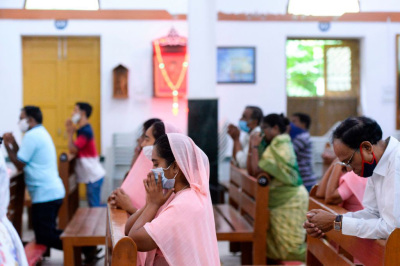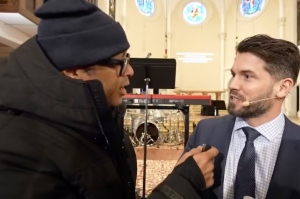Foreign missionaries' visa fraud must stop in India

The missionary call in the 1970s and 1980s for short-term or long-term missionaries to go into nations to evangelize the world drew a great response.
It helped build the cross-cultural experience of young Westerners who went abroad with or without the proper missionary visas. This transformed many lives, but especially the lives of these young workers.
Here’s a hard truth, though: Tourist and business visas were abused in that Westerners carried out missionary work without declaring themselves as missionaries.
It didn’t take long before nations like China, India, Iran and Indonesia, and many others in the Middle East, discovered these tricks and they did not take kindly to this abuse of the visas given to foreign travelers. It was easy for the missionaries: they were kicked out safely to return to their home countries. But it wasn’t so easy for those locals they sought to inspire. For years, many of them would be accused of being agents of a foreign power.
India clamped down heavily on this and went to the extent of even stamping “not for missionary work” on those visiting India for tourist and business purposes, on every visa.
Governments effectively changed the visa laws in order to stop this abuse. And now, skepticism of Christians is something the local church in India deals with in different ways, every day.
Recently, I have personally been involved in dealing with a group of Western missionaries who are part of a major international missionary agency that engages in missionary work in direct contravention of the law. I can’t emphasize enough how this kind of abuse of the system affects the nationals at work in the nation.
How could this honor God? How could Western Christians believe God condones such deceptive practices? When foreign Christians exit these countries, it is the locals who have to answer the questions, and they are the ones that suffer guilt through association.
The words and terms used by Western missionaries also cause problems. For example, “conversion” and “unreached people groups” are dangerous words in the majority world. They carry the notion of foreign intervention in changing the local population, its culture, and its demographics. In today’s world, this is considered a political act.
The international group I have been dealing with does not seem to care about the enormous threat and risk to nationals when foreigners carry out clandestine missionary work.
The group of missionaries is simply unwilling to let go and let God carry out His work through nationals. And, by the way, using proxy paid nationals should not be considered working with nationals.
Foreign mission organizations need to understand that the world has changed. This isn’t the 70s anymore. Furthermore, this recklessness makes it all too easy for critics of Christianity to argue that religion is the product of white, Western colonialism. Of course, we know it isn’t. Christianity is the most diverse, global movement in human history.
But who would know, since international groups continue to perpetuate the colonial model of missions. They consider themselves some kind of extra-judicial authority over national governments, determining what is right and wrong in terms of engaging in missionary work and visa regulations.
The era of missionary adventurism must end. We live in a global world, and furthermore, a digital world. Local governments can quickly access information, and there are consequences for breaking the law.
What’s more, there are also cases of missionaries acting like businesspeople, yet they are not truly involved in operating a business. There are also recurring cases of unqualified and untrained medical personnel doing medical work in most of the world as well.
In recent years, I have received calls either from overseas or from a local police station, where I am told of yet another foreigner getting arrested and in trouble because of missionary misadventure. They’re usually looking for help. After assessing the particular situation, I almost always tell them to plead guilty and get out.
The other option is to be held in India for a long period of time, fight the case with the Indian government, which they are most likely going to lose.
We need to turn the church upside down. It’s time for the Western church to learn from Asian and other non-Western churches. Stop trying to save us and then rely on us to save you when you break our laws.
With the world and the global Church dramatically changed, we need a new kind of engagement that not only respects local culture but local laws. Christians in the Western world need to let churches in other nations determine what is best for their church and their nation.
In the meantime, I’m urging all Christians to end every kind of clandestine missionary work that abuses local laws.
Archbishop Joseph D’Souza is an internationally renowned human and civil rights activist. He is the founder of Dignity Freedom Network, an organization that advocates for and delivers humanitarian aid to the marginalized and outcastes of South Asia. He is archbishop of the Anglican Good Shepherd Church of India and serves as the president of the All India Christian Council.



























